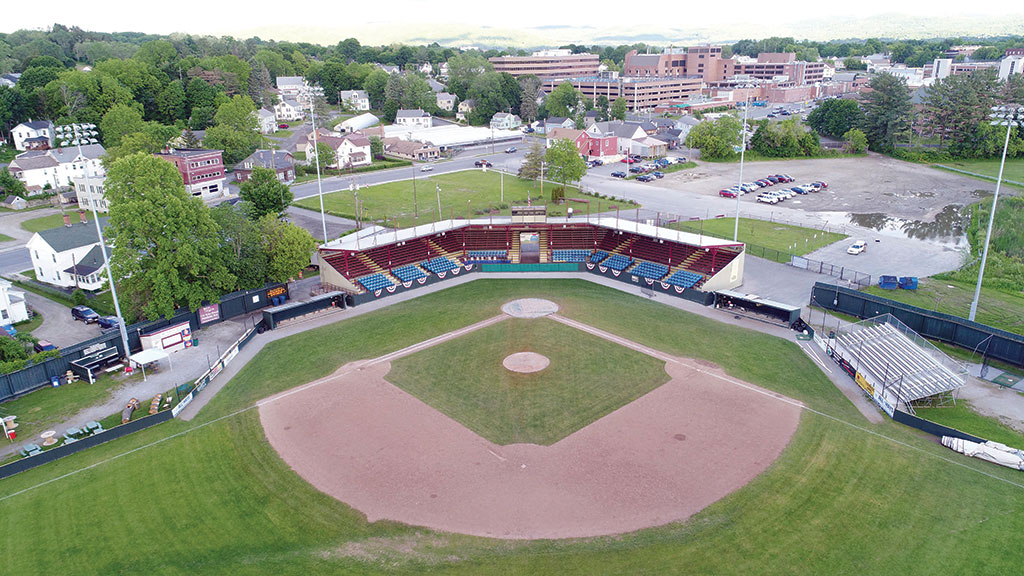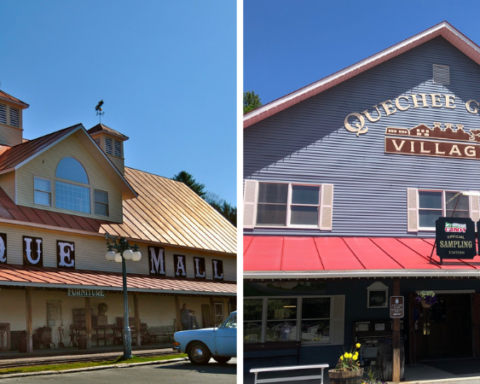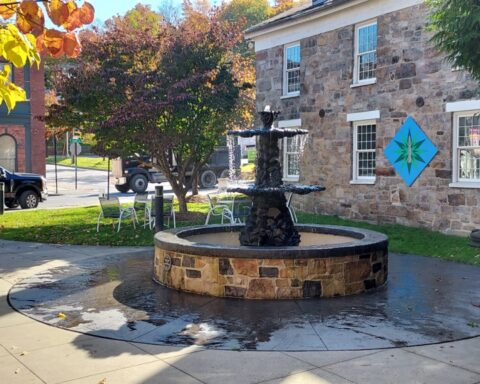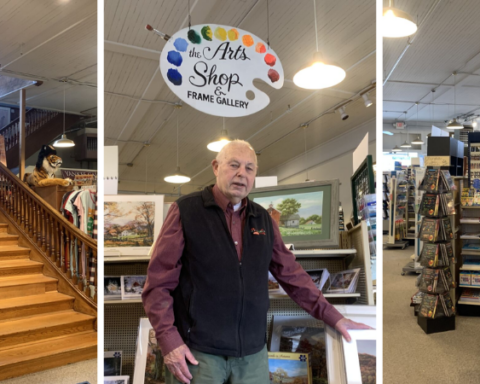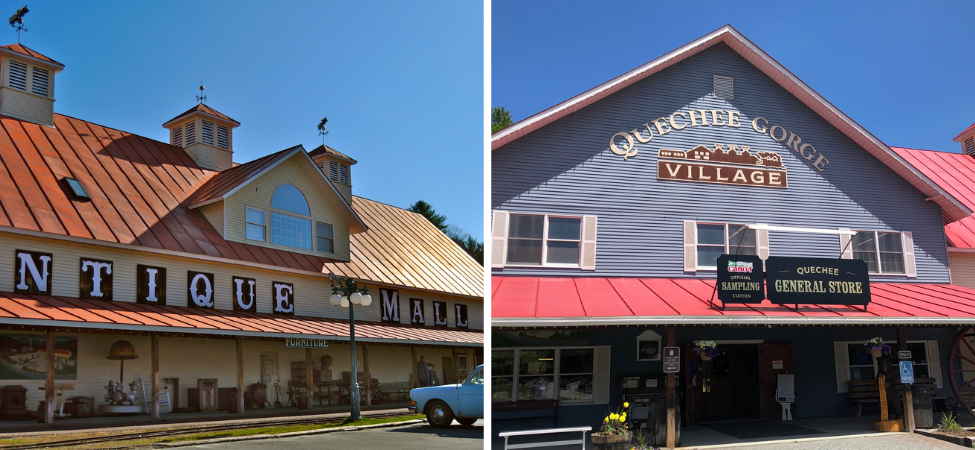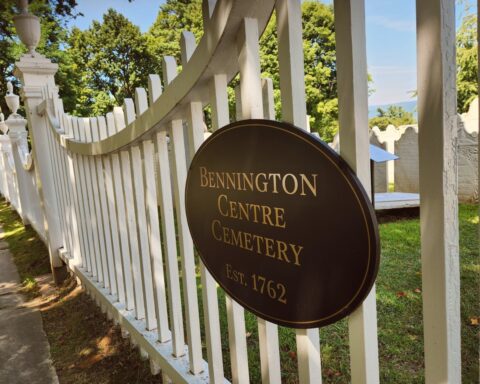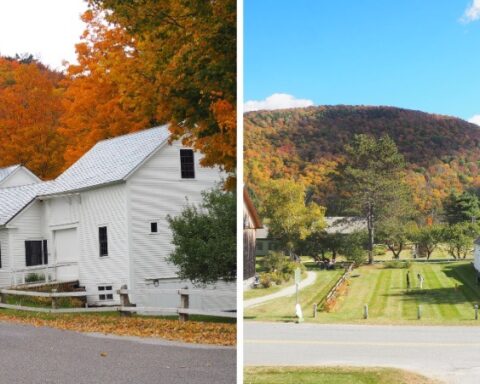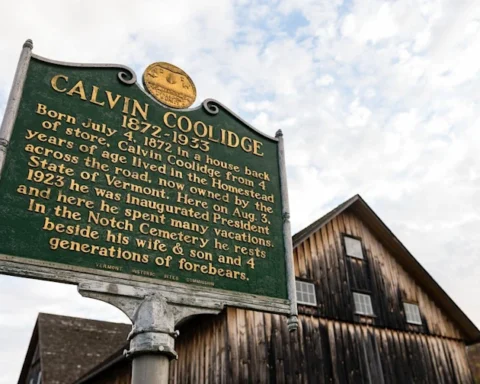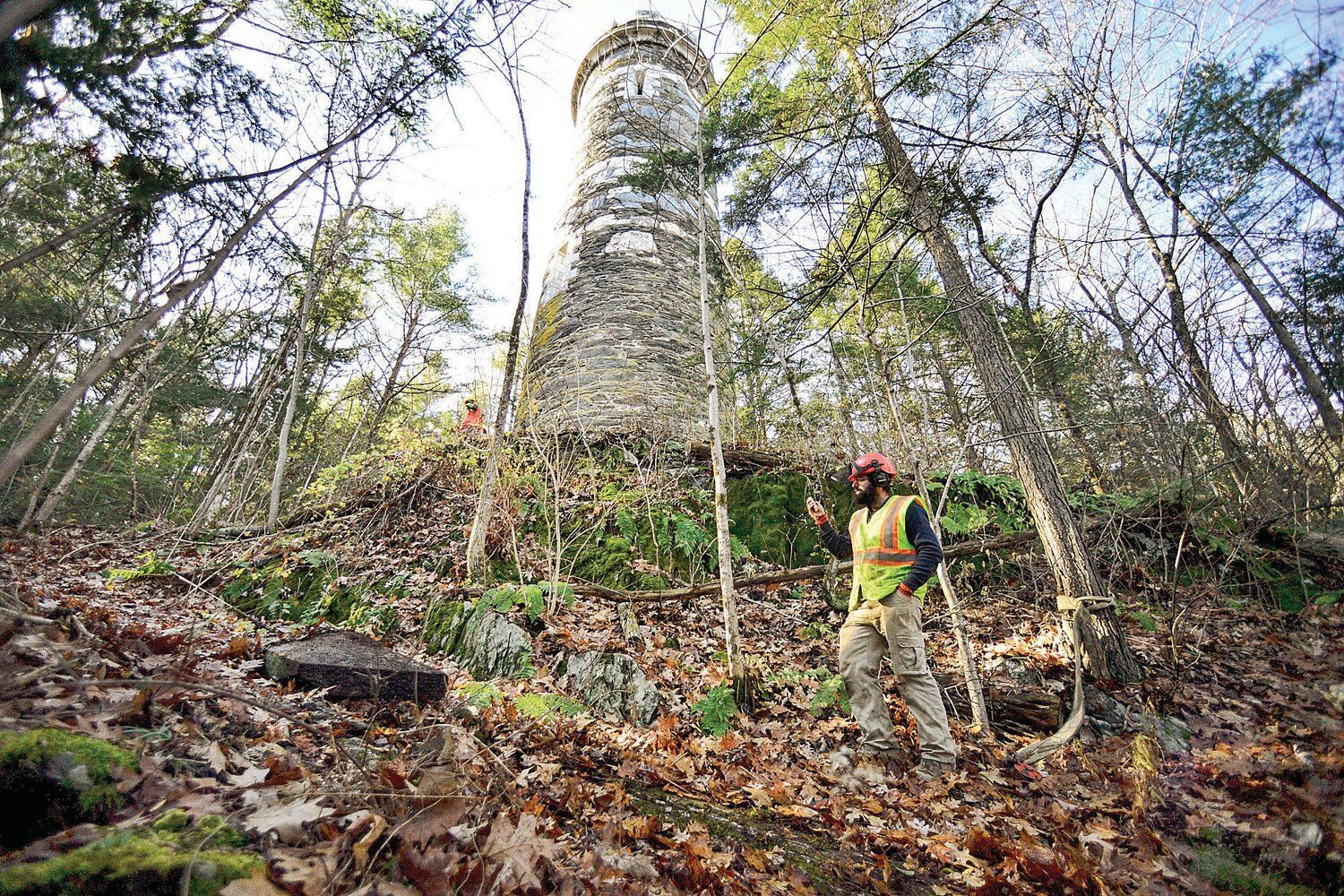By Don Keelan, Vermont Country correspondent.
Every generation of baseball fans is fortunate to have a novel about baseball and a chance to imagine themselves as the novel’s hero.
In 1952, Bernard Malamud told the baseball world (and others) about a Midwest farm boy who takes a fallen tree’s remnants and converts them into a baseball bat. As we read on in Malamud’s superb novel, “The Natural,” what a bat it would become.
Some 30 years later, the baseball world was accorded another story that ignited the reader’s imagination of what could be. This time, it was provided by movie director/writer Phil Alden.
Alden’s work is not about a bat but a field, not in Nebraska, where Malamud’s story initially takes place, but in Iowa, in a cornfield. Yes, “Field of Dreams,” which Alden adapted from W.P. Kinsella’s 1982 novel “Shoeless Joe.”
For those who might not remember the plot, it is about a corn farmer who creates a baseball field where the farm’s corn stalks majestically once stood. Farmer Ray hopes that if he builds a ball field, “they will come” — the infamous Chicago Black Sox 1919 baseball team players, including Shoeless Joe Jackson.
A generation later, in 2024, we have our own author of a baseball story — a tale right up there in plot creation, suspense, and imagination, as witnessed in “The Natural” and “Field of Dreams.” For our generation, David Meiselman, of Dorset, Vermont, shares his baseball hero in “Never Too Late.”
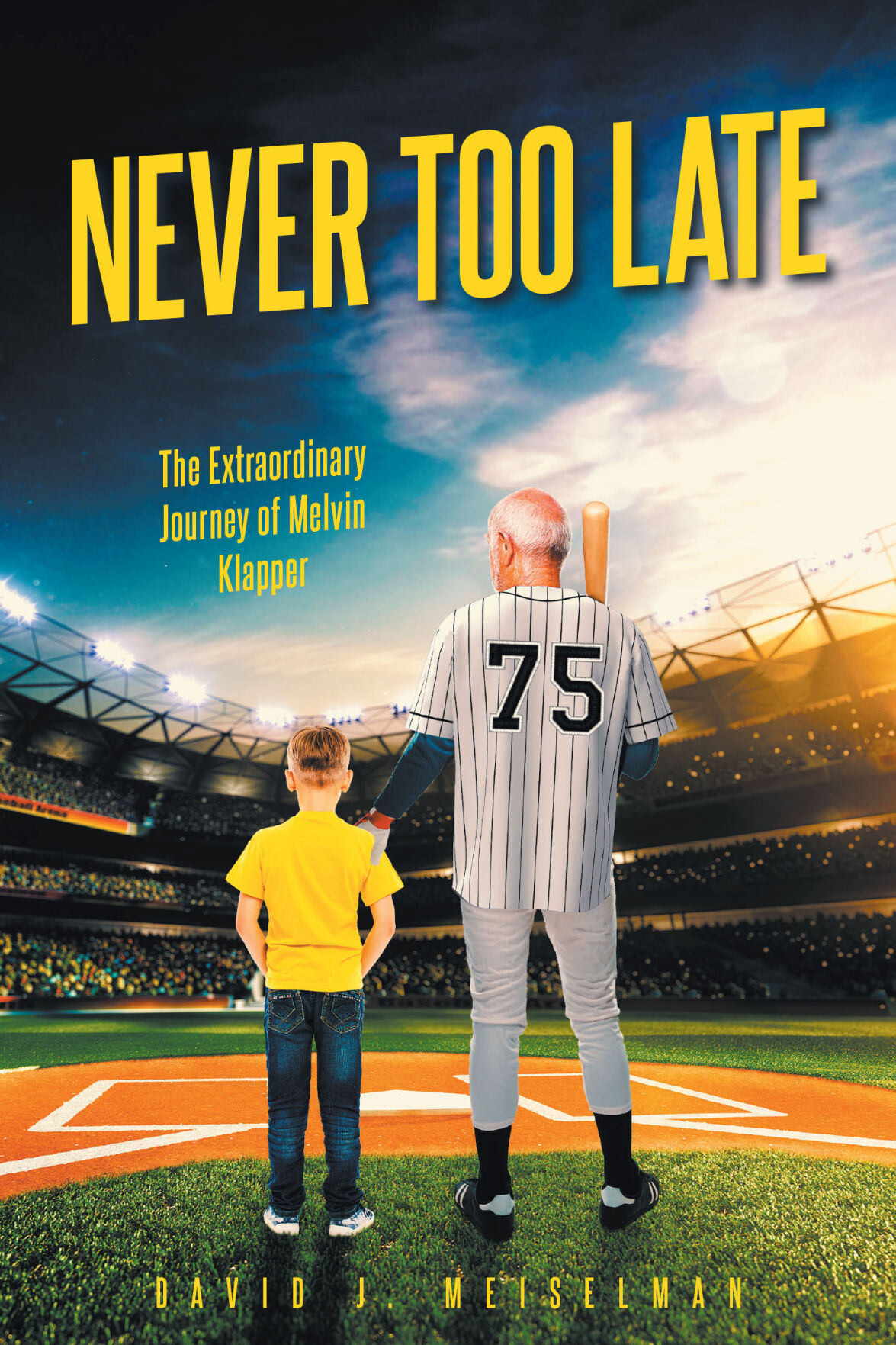
In “The Natural,” we were introduced to the brilliant pitching and especially the batting talents of the 36-year-old Roy Hobbs. In Alden’s creative work, Ray Kinsella built the baseball field in his late twenties. In “Never Too Late,” we are introduced to a retiree who is also a grandfather, widower and devoted New York Yankee fan from a suburb of New York City, 75-year-old Melvin Klapper.
Mr. Meiselman, a retired attorney and Vietnam-decorated United States Marine, grew up in nearby Brooklyn and knows Melvin’s journey from his home to Yankee Stadium.
It is only a 45-minute subway ride from downtown Manhattan to 161st Street in the Bronx, where each spring and summer, thousands of baseball enthusiasts exit the elevated train, go down the stairs, and cross the street to Yankee Stadium, “The Home That Ruth Built.”
In “Never Too Late,” we are treated to a day at Yankee Stadium, joining Melvin and his grandson, Billy, after they made the train and subway journey to the stadium’s bleacher seats.
Melvin and Billy, along with longtime bleacher seat fans, bring along not only something to eat and drink but, most importantly, a baseball glove, hoping that they will be the ones to snag a homerun ball. Such a feat would be rare at Yankee Stadium, given that the bleacher seats are well over 400 feet from home plate.
But that was not the case on this sunny late spring afternoon. The Boston Red Sox batter smashed a pitch with such velocity and distance that it was heading right for Billy’s face. Melvin, a gray-haired retired grocery store worker, snared the drive, not with Billy’s glove but his bare hand. Grandson Billy was in disbelief; Grandpa caught a home run ball. Also in amazement were the millions of fans who witnessed the remarkable catch on the Jumbotron and ESPN.
Longtime tradition in the bleacher section mandates that a home run ball by the opposing team, captured by a Yankee fan, is thrown back onto the field. Thousands of fans were watching what Melvin’s next move would be. Billy did not want the ball thrown back, but Melvin Klapper reluctantly conceded to tradition.
Klapper stands up and throws the home run ball back. With the throw completed, Mr. Meiselman takes his readers back to the “Field of Dreams” and “The Natural.”
Melvin fires a line-drive strike right to the Yankee catcher. The perfect and most unusual throw was not lost on the Yankees’ dugout personnel, the general manager, or the team’s owners, sitting and watching from their private box seats.
Not only does Mr. Meiselman capture so much of what it was like to be on the subway and the anticipation of going to a game, but his writing takes this writer back to the Bronx and 161st Street. His description of the game Melvin and Bill are at is such that I felt I was sitting next to Klapper and his grandson. You can just smell the popcorn, hot dogs, mustard, and, of course, the pretzels.
In turning the pages, Mr. Meiselman allowed me to turn back the years to when I once sat in the bleacher seats at Yankee Stadium, now occupied by Melvin and Billy. For me, it was a time when a kid from Oklahoma would replace my hero, the legendary Yankee center fielder Joe DiMaggio. The kid was Micky Mantle.
The Yankee management wastes no time bringing Melvin to the clubhouse, where he is interviewed, provided with a uniform, spike shoes, and a mitt, and then taken to the field for a tryout in fielding, throwing and batting. His performance amazes the Yankee players, coaches, the manager, and most importantly, the owners. He’s hired and given a contract.
The contract is not anywhere near what was recently given to Shohei Ohtani, pitcher and designated hitter for the Los Angeles Dodgers, $700 million over 10 years. The amount given to Klapper will be left to the readers to discover. Also, how Klapper performs will remain a secret for now.
In “Never Too Late,” Mr. Meiselman helps us appreciate the importance of having friends, family, and especially dreams in life, regardless of age. His fourth published book takes us back to what we were given in “The Natural” and “Field of Dreams” — the gift of imagining what could be.
This writer has some sense of what that means, having spent a week in February 1991 at the New York Mets baseball fantasy camp in Port St. Lucie, Florida. Along with 65 other dreamers, we trained and played baseball with 18 former New York Mets. For seven days, two games each day, I thought I could be a Roy Hobbs. Now, thanks to Mr. Meiselman, I can once more dream that someday I just might be a Melvin Klapper. It is never too late.
If you wish to obtain a copy of “Never Too Late” before you pick up your baseball glove or as a holiday gift, you can do so by going to hawesjenkins.com/books/?book=never-too-late or asking your local bookstore.
Don Keelan lives in Arlington and is a longtime columnist for Vermont News & Media.
